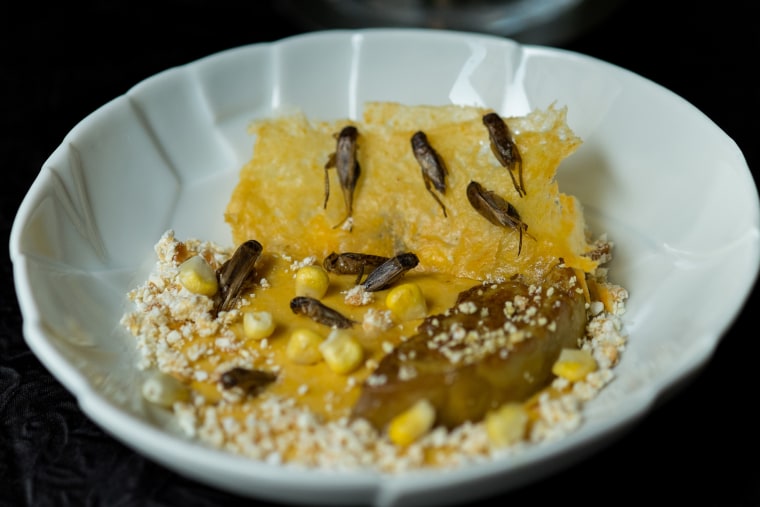MAINZ, Germany – Flour worms, crickets and migratory grasshoppers could soon be on menus in Switzerland.
The Alpine country's government is in the final stages of passing a new law which would introduce the "delicacies" as officially permitted food. Until now, insects have not been recognized in Europe as edible food products.
“Following a request in parliament by the environmental Greens party, we are evaluating whether these three insects can be incorporated in our revised law,” Michael Beer, deputy director at Switzerland’s federal food safety and veterinary office (BLV), told NBC News.
The political party is advocating reduced meat consumption for Swiss society.
"Insects are climate friendly and are a good protein source," said Urs Scheuss, a spokesman for the Greens in Bern.
Scheuss' party even held an insect-tasting session in parliament to support its case.

The proposed new law would limit the regulated insects to the three most commonly known and used types, but “we could add further insects in the future, if they meet food safety regulations,” Beer added.
But even if the Swiss parliament gives final approval to insects as edibles, they will have to meet strict European regulations.
"It will need to be guaranteed that they are freshly produced, do not include contaminants and we need to assess whether special allergy warnings have to be tagged to the product," Beer said.
“Swiss health and safety officials might even have to conduct food checks and inspections” at insect farms outside of the country, he added.
